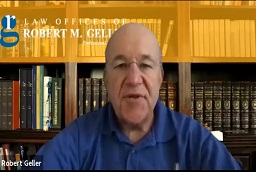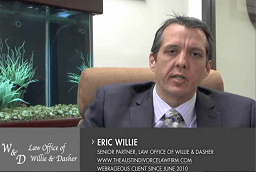What is the truth behind pay per click fraud? Is it getting worse or has it always been around and every now and then the industry suffers from a classic case of Chinese whispers, aimed to frighten pay per click advertisers into investing in pay per click fraud management via expert companies?
As with most industries, it isn’t always smooth running in the pay per click industry. There are lots of issues that the pay per click advertiser must deal with on a day to day basis and this includes click fraud. There is no doubt that it exists and it is true that click fraud scam artists are also always looking for ways to get better at what they do.
This means that even if your business has beaten click fraud before, there is no guarantee that you won’t have to battle against it again in the future when you come under attack from a different direction and via a different strategy.
However, a fear of pay per click fraud should never stop interested business owners from using pay per click advertising to market their products and services. Pay per click is an extremely important and effective form of online marketing. Those businesses who do not invest certainly lose out on sales and branding reputation opportunities.
Table of Contents
Matt Cutts of Google and other experts on Click Fraud
Matt Cutts, during an interview on Domain masters (which can be listened to as a podcast via this link), reassures the pay per click advertising community about the concerns of click fraud and all that is being done to reduce, control, eradicate click fraud by the masterminds at Google.
The interview starts to get really interesting in terms of click fraud half an hour in, so skip the intro if you are a bit short for time.
Business 2 Community provides further support and ideas when it comes to the prevention of click fraud. On reading what the article has to share about the subject it becomes clear that click fraud, while an important issue to be aware of, is not something that pay per click advertisers have to deal with on such a grand scale that their businesses suffer and their budgets go down the drain.
The author of the post, Charles Benisch, recommends the following in a nutshell to ensure a definite management of and control over the evils of pay per click fraud:
- Set a strict daily budget which means you will be less susceptible to online fraudsters who have more or a chance of stealing from big advertising players who invest huge amounts of money in online advertising.
- Develop quality landing pages that are incredibly well-optimized. If your bounce rate is then strangely high it might be cause for concern and an indication that someone is intentionally clicking on your advertisements without any intention of following through with a conversion.
- If you restrict the geographic placement of your advertisements, you can better ensure that only real customers who might be interested in converting see your advertisements and have the chance to click on them.
- Invest in Click Fraud Reporting Tools, for pretty obvious reasons.
A specific focus on mobile pay per click
Gigaom published an interesting report recently which presents the pay per click industry with specific data concerning click fraud via the mobile network. The report reveals that 40% of mobile ad clicks are either fraudulent or accidents.
The figure is particularly high and does suggest some cause for concern, but it is important to recognize that the data presented is a mixture of clicks that have been proven to be fraudulent and accidents. When users are on mobile devices, accidents occur more frequently, buttons are pressed without care and this can affect the success of a pay per click campaign and drain its budget.
However, most pay per click advertisers are aware of these issues and normally choose to invest less of their advertising budgets in the mobile network simply because of the nature of Internet user behavior. The point is that even though the figure is high, it is a figure which only applies to the mobile network and doesn’t cover the entire pay per click advertising network as a whole.
Google Display and Placement Fraud
The PPC experts over at PPC Hero have published an interesting article about Display and Placement Fraud, which perhaps most people are less informed about as most information and most fears surround the kind of click fraud generated on the Paid Search Networks.
Again, while an interesting article about click fraud and while full of plenty of evidence to suggest that it is an issue we have to be aware of in the online advertising industry, it is still clear that click fraud is something that can be controlled when you have an expert working with you on your campaigns.
For instance, even in the article written by the experts at PPC Hero, lots of helpful and concrete tips for spotting Display and Placement Click Fraud are shared and tips for knowing what to do to combat it too are also shared.
The first lot of advice to spot the click fraud covers the following:
- Weekly placement audits
- Dodgy website investigations
- Search for websites that spend lots of money on AdSense without generating many conversions
The experts then go on to offer advice about what to do if you think you are the victim of click fraud:
- Ban the website from all your campaigns
- Report your findings direct to Google, Bing or whichever pay per click advertising network you are running your advertising campaigns on
In conclusion
Essentially, even though click fraud exists, it can be fought. The important thing to realize is that it is advisable to have a pay per click expert managing your campaigns for you because only then can you be sure that the issues, however clever the offending parties happen to be, are detected in time.
Contact us at any time. Webrageous is more than willing to help anyone who is concerned about pay per click fraud at any time.

Need Google Ads Management Help?
Free Google Ads account review for
qualified clients
Almost 20 years experience



















